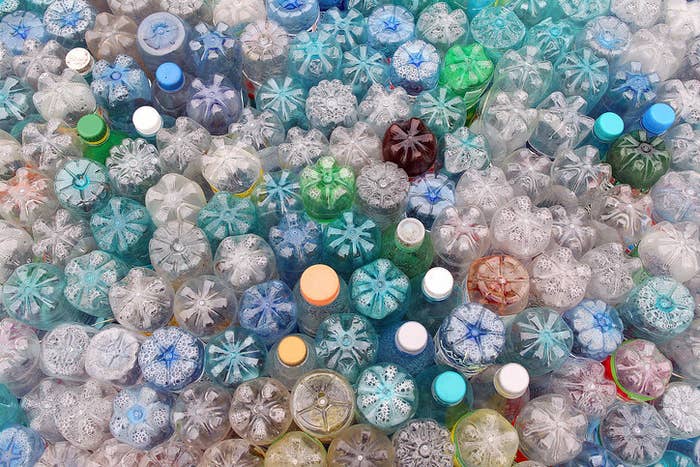
Since humans starting making and using plastics on a large scale in the 1950s, we’ve made over 8,300 million tonnes of the stuff, and thrown out 6,300 million tonnes as waste, according to a new study. The researchers say it’s the first global analysis of mass-produced plastic.
Just 9% of the 6,300 million tonnes of waste plastic has been recycled, compared with 12% that’s been incinerated and 79% that has ended up in landfill or in the natural environment. The data covers the period between 1950 and 2015.
“If people are shocked by that recycling figure, that’s probably part of the message that as a world community there is work to be done on making recycling more viable, formalising it more and keeping better track of it,” Dr Arturo Castillo Castillo, a researcher at the Centre for Energy Policy and Technology at Imperial College London who was not involved with the study, told BuzzFeed News. “This is not something that is a well-oiled machine in every part of the world.”
To put those figures into perspective, here's 8,300 plastic cup emojis – one for every million tonnes of plastic humanity has produced since 1950.
And here's 6,300 waste bins – one for every million tonnes of plastic has been thrown out.
Just 9% of all that waste has been recycled – that's 600 million tonnes.
And 12% of the total waste, or 800 million tonnes, has been incinerated.
The vast majority of the plastic we've thrown out – 79%, or 4,900 million tonnes – has ended up in landfill or in the natural environment.
The researchers project that, if current trends continue, the amount of plastic in landfill or the environment could reach 12,000 million tonnes by 2050.
But Castillo Castillo told BuzzFeed News that picture might be "more optimistic" than how things turn out in reality.
As people around the world become more well off, they’ll start to use more plastics – and our waste management systems might not be able to keep up, he said. “In Europe [waste management might keep up], but in, for example, countries like India, the Philippines, Indonesia, and Vietnam amongst others... I don’t think that’s going to be the picture."
The properties of plastic that make it so useful – its durability and its longevity – are also what make it “difficult or impossible” for nature to break it down, the authors write in the study, published today in the journal Science Advances. They add: “Humans are conducting a singular uncontrolled experiment on a global scale, in which billions of metric tons of material will accumulate across all major terrestrial and aquatic ecosystems on the planet.”

